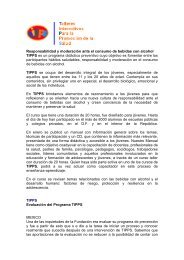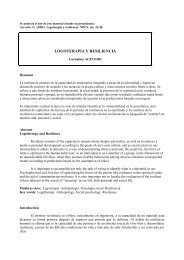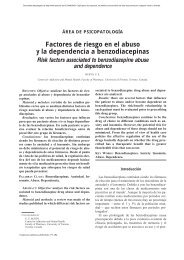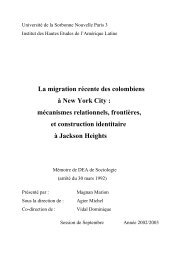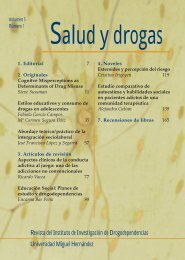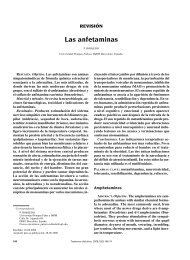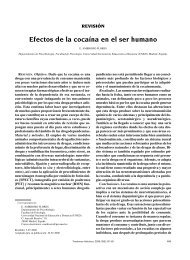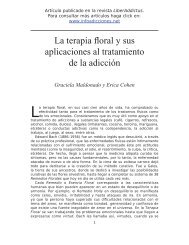migrant women in the United Arab Emirates
migrant women in the United Arab Emirates
migrant women in the United Arab Emirates
You also want an ePaper? Increase the reach of your titles
YUMPU automatically turns print PDFs into web optimized ePapers that Google loves.
4.4. Legislation related to <strong>the</strong> employment of <strong>migrant</strong><br />
workers<br />
As most of <strong>the</strong> issues have been addressed <strong>in</strong> earlier sections, a note on family law is<br />
added here. The <strong>United</strong> <strong>Arab</strong> <strong>Emirates</strong> applies <strong>the</strong> Islamic Sharia Law, which is applicable<br />
to all parties alike, <strong>migrant</strong>s and non-<strong>migrant</strong>s. However, differences occur among Islamic<br />
trends and schools of thoughts and also among <strong>the</strong> different <strong>Emirates</strong> <strong>in</strong> <strong>the</strong> <strong>United</strong> <strong>Arab</strong><br />
<strong>Emirates</strong>. The differences <strong>in</strong> application of laws and regulations <strong>in</strong> each Emirate extend to<br />
crim<strong>in</strong>al laws. In earlier crim<strong>in</strong>al charges aga<strong>in</strong>st foreign female domestic workers, <strong>the</strong><br />
penalty often depended on <strong>the</strong> Islamic school of thought and <strong>the</strong> place of trial (a situation<br />
similar to most federal political regimes).<br />
4.5. Legislations perta<strong>in</strong><strong>in</strong>g to traffick<strong>in</strong>g<br />
The <strong>United</strong> <strong>Arab</strong> <strong>Emirates</strong> Immigration Laws and regulation forbid traffick<strong>in</strong>g <strong>in</strong><br />
person. This is clearly stated <strong>in</strong> <strong>the</strong> Federal Law No. 13, 1996, Article 33, which specifies a<br />
penalty of a m<strong>in</strong>imum of three years <strong>in</strong> prison and a maximum of 15 years and a f<strong>in</strong>e of<br />
Dhs15’000 for anyone engag<strong>in</strong>g <strong>in</strong> traffick<strong>in</strong>g and/or help<strong>in</strong>g it. The <strong>United</strong> <strong>Arab</strong> <strong>Emirates</strong><br />
Government will, <strong>in</strong> addition, penalize and confiscate any means of transportation used <strong>in</strong><br />
<strong>the</strong> process. It will also send <strong>the</strong> people caught <strong>in</strong> traffick<strong>in</strong>g back to <strong>the</strong>ir home countries<br />
(Official Gazette 1973).<br />
Article 34 of <strong>the</strong> same law penalizes <strong>the</strong> falsification of documents, visas, passports or<br />
any means used <strong>in</strong> traffick<strong>in</strong>g.<br />
4.6. Implementation and enforcement<br />
Accord<strong>in</strong>g to <strong>the</strong> head of <strong>the</strong> Department of Immigration Law Enforcement and<br />
Penalties <strong>in</strong> <strong>the</strong> Department of Immigration <strong>in</strong> Dubai, <strong>the</strong> regulations are applied “by albaraka”,<br />
a concept mean<strong>in</strong>g “grace” (Salah B<strong>in</strong> Salom, 10 May 2001). Accord<strong>in</strong>g to this<br />
<strong>in</strong>terview, it seems that laws are not enforced accord<strong>in</strong>g to a clear system but based on<br />
experience and personal decision-mak<strong>in</strong>g. Idiosyncrasies seem to be highly visible <strong>in</strong> a<br />
country that is still very young most of whose rules and regulations are imported. National<br />
lawyers and law enforcement officers are newly tak<strong>in</strong>g <strong>the</strong>ir roles <strong>in</strong> <strong>the</strong> system and may<br />
need ano<strong>the</strong>r generation or so to build real experience.<br />
A <strong>United</strong> <strong>Arab</strong> <strong>Emirates</strong> female lawyer confirmed <strong>the</strong> above observation, say<strong>in</strong>g that<br />
<strong>the</strong>re is no system that can be evaluated and developed, and that <strong>the</strong> problem of foreign<br />
domestic workers is grow<strong>in</strong>g, but is not given any special attention. It seems that “both<br />
legal and political systems are full with contradictions, and <strong>the</strong> status of foreign female<br />
domestic worker is one of <strong>the</strong>m” (Amna Jallaf, 5 April 2001).<br />
UAE Work<strong>in</strong>g Paper_1 37



